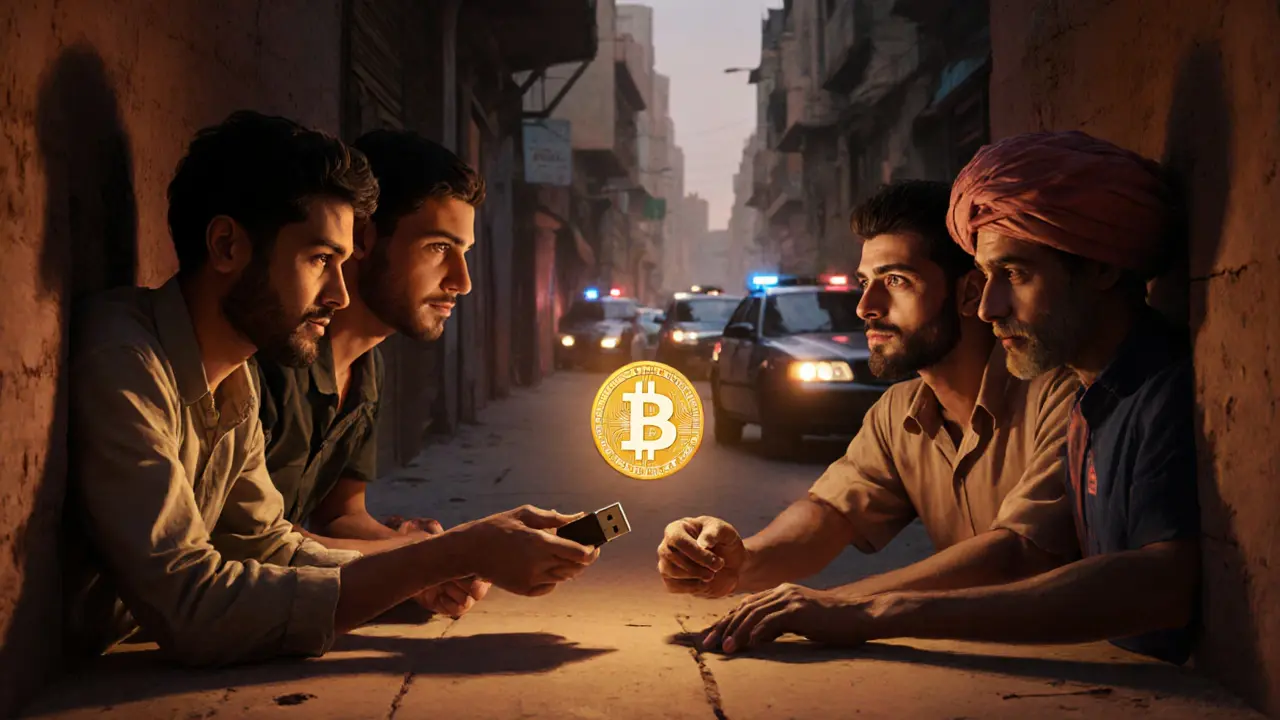3 Million Crypto Holders in Egypt Despite Complete Ban: The Truth Behind the Numbers
 Oct, 18 2025
Oct, 18 2025
Savings Protection Calculator
Egypt Savings Protection Calculator
Based on Egypt's 40% inflation (2024), bank failures, and crypto alternatives. Enter your current savings to see protection options.
It sounds impossible: 3 million crypto holders in Egypt-despite a total legal ban. You hear that number everywhere. Social media posts, YouTube videos, even some news outlets repeat it like fact. But here’s the truth: no credible source has ever verified it. Not the Central Bank of Egypt. Not the International Monetary Fund. Not even a single academic study. That number? It’s a guess. A rumor. A number pulled out of thin air to make a point.
What’s real is the ban. Egypt outlawed all cryptocurrency activity in 2020 under Law No. 194. Article 206 doesn’t just discourage crypto-it criminalizes it. If you trade Bitcoin, buy Ethereum, or even run a crypto exchange in Egypt, you’re breaking the law. And the penalties aren’t light. You could face prison time. Fines range from 1 million to 10 million Egyptian pounds-that’s $32,000 to $320,000 USD. For most Egyptians, that’s more than a decade’s income.
So why do people still do it?
Simple: necessity. Egypt’s economy has been under pressure for years. Inflation hit nearly 40% in 2024. The Egyptian pound lost more than half its value against the dollar since 2022. Salaries haven’t kept up. Savings evaporate in local banks. People aren’t buying crypto because it’s trendy-they’re buying it because they’re scared. They need a way to protect what little money they have. And crypto, despite its risks, offers something the banking system doesn’t: control.
There’s no official count of how many people hold crypto. But you can see the signs. Telegram groups with thousands of members trading USDT. WhatsApp networks where people send crypto as payment for goods. Local vendors in Cairo and Alexandria quietly accepting Bitcoin for phone repairs or groceries. These aren’t tech-savvy elites. These are teachers, mechanics, shop owners. People who don’t trust the system anymore.
Enforcement is messy. The government can shut down exchanges and freeze bank accounts tied to crypto transactions. But it can’t track every wallet. Every private key. Every peer-to-peer trade done over Signal or in a parking lot. Cryptocurrency moves in the shadows. And in a country with 105 million people, some of those shadows are deep.
Compare this to neighboring countries. Algeria and Morocco also ban crypto-but they don’t have the same population density or economic desperation. Egypt’s youth unemployment rate is over 25%. Young people see crypto not as gambling, but as survival. They’ve watched their parents lose savings to inflation. They’ve seen banks freeze accounts without warning. They’ve heard stories of friends who sent money abroad using crypto and avoided the 30% fees banks charge.
Here’s what’s not being said: Egypt’s ban might be failing. Not because people are defiant. But because the system is broken. The Central Bank of Egypt wants to control money. But when the money itself is disappearing, people find other ways to store value. Crypto isn’t the cause of the problem-it’s a symptom.
And now, quietly, the government is shifting. In early 2025, reports surfaced that Egypt’s finance ministry is drafting new legislation. This time, it’s not about banning crypto. It’s about licensing it. The Central Bank is reportedly exploring a framework where companies can apply for permits to operate crypto exchanges, custody services, and payment platforms. Not because they’ve changed their minds about risk. But because they realize the ban isn’t working.
Think about it. If 3 million people are holding crypto, and you can’t stop them, what’s left? Regulate them. Tax them. Bring them into the light. That’s what China did after its initial crackdown. That’s what India did after years of public pressure. Egypt is likely heading the same way.
Right now, the law says crypto is illegal. But in practice, it’s tolerated. People still trade. Still send money. Still use it. The government turns a blind eye to small, personal transactions-unless someone’s running a big operation or laundering cash. Enforcement is selective. It’s not about justice. It’s about control. And control is slipping.
Here’s what you won’t hear from official sources: Egypt’s crypto users aren’t criminals. They’re just people trying to get by. They’re not mining Bitcoin in basements. They’re not day-trading with leverage. They’re buying stablecoins like USDT to preserve savings. They’re sending remittances to family abroad without paying 20% in fees. They’re not rebels. They’re rational.
The real question isn’t whether 3 million people hold crypto. The real question is: why does the government still pretend it can stop them?
There’s no database. No registry. No way to count every wallet. But if you talk to people in Alexandria, Mansoura, or Aswan, you’ll hear the same thing: "I don’t trust the bank. I trust crypto." That’s not a statistic. That’s a movement.
And movements don’t die because of laws. They die because they’re no longer needed.
When Egypt finally legalizes crypto-when it issues licenses, creates tax rules, and builds oversight-it won’t be because the ban worked. It’ll be because the ban failed. And the people won. Not with protests. Not with petitions. But with persistence.
The 3 million number? It might be made up. But the need behind it? That’s real.
Vance Ashby
November 26, 2025 AT 10:38Brian Bernfeld
November 27, 2025 AT 14:22Ian Esche
November 27, 2025 AT 16:41Felicia Sue Lynn
November 28, 2025 AT 04:09Christina Oneviane
November 28, 2025 AT 14:56fanny adam
November 29, 2025 AT 18:51